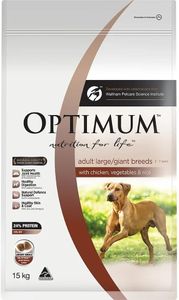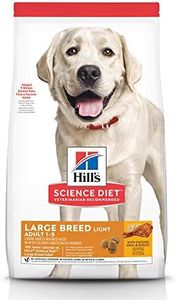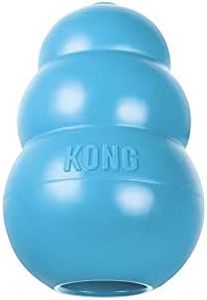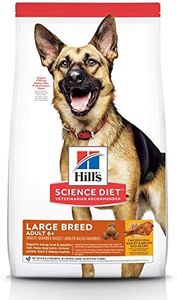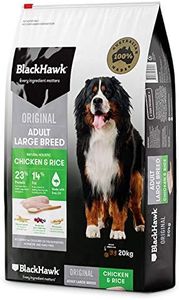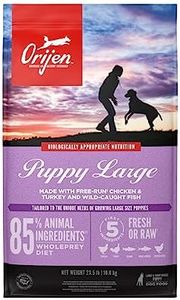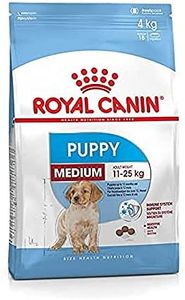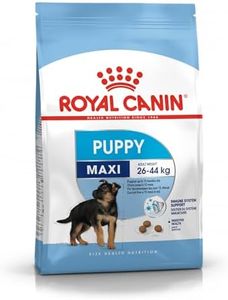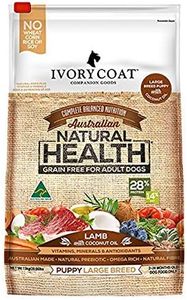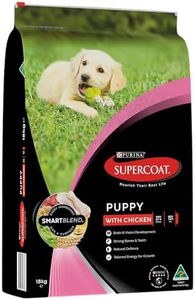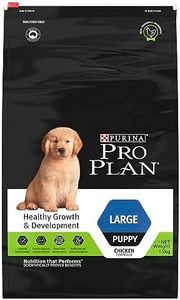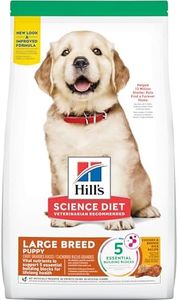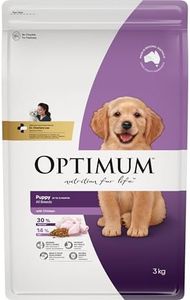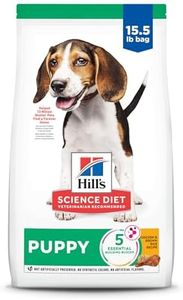We Use CookiesWe use cookies to enhance the security, performance,
functionality and for analytical and promotional activities. By continuing to browse this site you
are agreeing to our privacy policy
10 Best Large Breed Puppy Foods
From leading brands and best sellers available on the web.By clicking on a link to a third party's website, log data is shared with that third party.
Buying Guide for the Best Large Breed Puppy Foods
Choosing the right food for a large-breed puppy is crucial because their growth patterns, bone development, and overall health needs are different from smaller breeds. Puppies grow rapidly, and large breeds are especially prone to bone and joint issues if not fed properly during their developmental phase. The right food can ensure your puppy grows at a healthy rate, develops strong bones, and lays the foundation for a long, active life. To find the best fit, focus on the nutritional content, size of the kibble, and ingredients that support joint health, while also considering your pup's activity level and any sensitivities they may have.Protein ContentProtein is one of the most important nutrients for your growing large-breed puppy, as it helps build muscle and body tissue. Puppy foods typically have higher protein levels than adult dog food, but large-breed formulas often have a slightly lower protein percentage than those for small breeds to avoid overly rapid growth. Look for foods with protein levels in the moderate range—usually between 22% and 28%. This helps your puppy grow steadily rather than too quickly, reducing the risk of joint issues. Choose the lower or higher end depending on your puppy's activity level—active puppies may benefit from more protein, while more sedentary pups may require less.
Calcium and Phosphorus LevelsCalcium and phosphorus are minerals essential for strong bones and teeth, but large-breed puppies are sensitive to their levels—too much can cause abnormal bone growth and increase the risk of skeletal issues. Always choose a large-breed puppy formula that is specifically designed to have the right balance, usually around 1.2% to 1.5% calcium and 1% phosphorus (by dry matter). Avoid foods not intended for large breeds, and if you’re unsure, look for labels stating that the food is tailored for large-breed puppies, which ensures safer growth rates.
Kibble SizeLarge-breed puppies have bigger mouths, so they need larger kibble that encourages chewing rather than swallowing whole, which helps with digestion and keeps them engaged with their meal. Foods formulated for large-breed puppies will have kibble that is appropriately sized. If you notice your puppy struggling with food that's too small (eating too quickly or coughing), it’s a sign to look for kibble designed for larger mouths.
Fat ContentFat provides concentrated energy and is vital for healthy skin and coat, but for large-breed puppies, excessive fat can mean rapid weight gain and extra strain on developing joints. Large-breed puppy foods typically have fat levels between 8% and 14%. If your puppy is highly active, being on the higher end is suitable, otherwise, a moderate fat percentage supports controlled growth and joint health.
Joint Support IngredientsLarge breeds are more prone to joint problems like hip dysplasia as they age. Look for foods with added joint-support ingredients such as glucosamine and chondroitin. These aren’t always essential in puppyhood but can help set the stage for healthier joints long term, especially for breeds that have a known risk of joint issues.
Omega Fatty Acids (DHA & EPA)Omega-3 fatty acids, especially DHA, are important for brain and vision development in puppies. This is particularly critical during their rapid growth stages. Large-breed puppy foods often include fish oils or flaxseeds as sources. Puppies benefit from higher levels, which help with cognitive development and can support overall wellness. If your puppy is in training or you want to support their mental development, prioritize food with clearly labeled omega-3 content.
Digestibility and Sensitive Stomach SupportLarge-breed puppies can sometimes have more sensitive stomachs. Foods that use easily digestible ingredients, such as rice or oats, and include probiotics for digestive health, can help reduce stomach upsets. If your puppy has loose stools or seems uncomfortable after eating, look for foods labeled as gentle or formulated for sensitive digestion.
